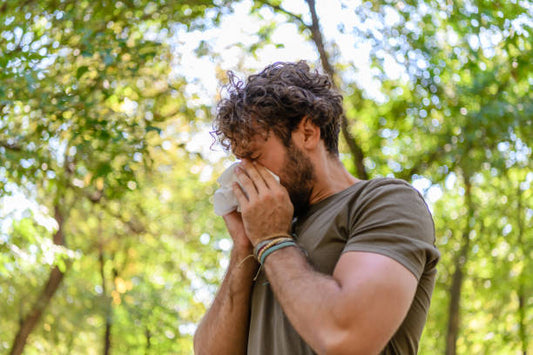Insufficient sleep is a frequent issue that affects a wide range of ages, genders, and lifestyles. Multiple circumstances, including stress, anxiety, sadness, and medical disorders, can cause it. Insomnia is characterized by trouble falling asleep, waking up frequently during the night, waking up too early in the morning, and feeling weary or sleepy during the day.
Sleep is necessary for overall health and well-being because it allows the body to rest and repair itself and improves mood, memory, and cognitive performance. Insufficient sleep can have detrimental impacts on both physical and mental health, as well as raise the chance of acquiring a variety of health disorders, including cardiovascular disease, depression, and obesity.
Despite the availability of numerous sleep aids and pharmaceuticals, some people may prefer to employ natural therapies, such as Bacopa, to improve their sleep. Bacopa, a herb frequently employed in ancient Ayurvedic medicine, is occasionally recommended as a natural sleep aid. However, there is limited scientific evidence to support its usage for sleep, and it should not be used in place of evidence-based treatments or medical advice.
History
Bacopa, also known as Brahmi, is a herb that has been used for centuries in Ayurvedic medicine. It is indigenous to India and has been utilized to enhance memory and cognitive function, as well as to reduce anxiety and stress. In recent years, Bacopa's potential to improve sleep quality has also been investigated. It is believed that Bacopa works by increasing the levels of GABA, a sleep-regulating neurotransmitter, in the brain.
Additionally, it is known to improve memory and cognitive function, as well as reduce anxiety and stress. A great deal of research is still ongoing to determine Bacopa Monnieri's full potential.
How it works
The precise processes through which Bacopa may help sleep are poorly understood. According to a number of studies, Bacopa may promote sleep by lowering the symptoms of anxiety and depression, which can disrupt sleep. Bacopa may also have a sedative effect, calming the mind and promoting relaxation, which can enhance sleep quality.
Bacopa may also have an antioxidant impact, reducing oxidative stress and protecting the brain and body from harm. By decreasing oxidative stress and encouraging relaxation, Bacopa may improve sleep and general health and wellness.
To completely comprehend the effects of Bacopa on sleep and the underlying processes by which it may function, additional research is required. It is also crucial to highlight that studies on Bacopa and sleep have yielded contradictory results, and that additional rigorous, well-designed trials are required to demonstrate its usefulness and safety for this purpose.
Studies and Results
There have been few research on the effectiveness of Bacopa for improving sleep, and the results have been inconsistent. The number of participants in these investigations has been minimal, with some studies comprising only a handful of participants and others involving up to sixty.
In one study, treatment with Bacopa enhanced sleep quality and reduced anxiety and depression symptoms in adults with sleep disorders. Another study discovered that Bacopa extract increased the quality of sleep for healthy adults. However, not all research have revealed significant sleep-enhancing advantages of Bacopa.
In terms of efficacy, Bacopa has demonstrated modest potential for enhancing sleep quality and lowering anxiety and depression symptoms. To fully comprehend the effects of Bacopa on sleep, additional research is required.
As dose might vary based on the individual and the illness being treated, it is advisable to visit a healthcare practitioner for tailored dosing recommendations. In general, doses of Bacopa utilized in sleep studies range between 300 mg and 450 mg per day, administered in divided doses. Before using Bacopa to enhance sleep or any other ailment, it is vital to take caution and consult a healthcare expert. Bacopa can cause adverse effects, such as digestive pain, and may interact with certain drugs.
Recommended Dosage
The recommended dosage of Bacopa varies based on the method of administration and the individual's requirements. For capsules, the typical daily dose of standardized Bacopa extract is 300-450 mg. It is essential to adhere to the directions on the product label and begin with a lower dose to determine tolerance. Before taking any supplement, it is also advised to consult a medical professional.
Conclusion
Bacopa is a natural herb that has been utilized in Ayurvedic medicine for centuries to enhance memory, cognitive function, and reduce anxiety and stress. Additionally, recent studies suggest that it may have the potential to improve sleep quality. It is thought to function by increasing GABA, a neurotransmitter that regulates sleep, in the brain. If you are having trouble sleeping, you may want to consider Bacopa as a natural remedy. Before taking any supplement, it is important to consult with a healthcare professional.
References
- Roodenrys, S., Booth, D., Bulzomi, S., Phipps, A., Micallef, C., & Smoker, J. (2002). Chronic effects of Brahmi (Bacopa monnieri) on human memory. Neuropsychopharmacology, 27(2), 279-281.
- Pase, M. P., Kean, J., Sarris, J., Neale, C., Scholey, A., & Stough, C. (2012). The cognitive-enhancing effects of Bacopa monnieri: a systematic review of randomized, controlled human clinical trials. The Journal of Alternative and Complementary Medicine, 18(7), 647-652.
- , C., Lloyd, J., Clarke, J., Downey, L. A., Hutchison, C. W., Rodgers, T., & Nathan, P. J. (2001). The chronic effects of an extract of Bacopa monniera (Brahmi) on cognitive function in healthy human subjects. Psychopharmacology, 156(4), 481-484.




